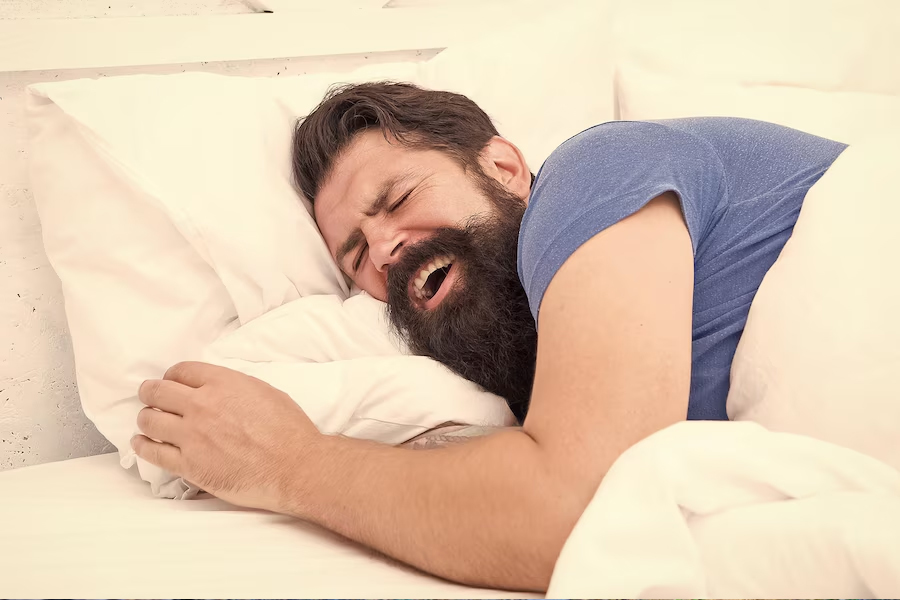
Even though everyone has different demands when it comes to sleep, prolonged periods of sleep could occasionally point to underlying medical problems. Oversleeping could be defined as sleeping much more than this regularly. Adults generally require 7-9 hours of sleep per night to function at their best. But how do you know you are sleeping more than enough? To understand more about sleep, we spoke to our experts, who explained oversleeping, its signs, causes, and impact.
Table of Content:-

According to a 2014 study, sleep plays a vital role in numerous bodily, cognitive, and psychological functions, and achieving quality sleep is deemed essential for overall health and survival.
“Oversleeping is generally defined as sleeping for more than nine hours per night. However, individual sleep needs can vary, so it's important to consider your typical sleep patterns and how you feel after waking up”, said Dr Vipul Gupta, Chief – NeuroInterventional Surgery; Co-Chief Stroke Unit, Artemis Hospital, Gurugram.
Understanding Sleep Patterns

“Sleep patterns vary widely among individuals and are influenced by factors, such as age, genetics, lifestyle, and overall health. While the recommended amount of sleep for adults is typically 7-9 hours per night, some individuals may naturally require more or less”, added Dr Gupta.
According to the Sleep Foundation, the optimal amount of sleep required each night varies based on individual factors, such as daytime habits, health status, and sleep patterns. While older adults may find six hours of sleep sufficient, others, such as athletes, may require an additional hour. Occasionally, circumstances like strenuous activity or travel may necessitate more sleep than usual.
“We often overlook the importance of rest when we're preoccupied with achieving success. We wonder, 'Can we sleep too much?' It's a tricky balance between working hard and taking care of ourselves. These days, we're often tempted to keep pushing ourselves without enough sleep. But that's not good for us. It can make us less creative, less able to handle challenges, and overall, less healthy. We need to realise that rest isn't a luxury—it's something we need”, said PV Shyam Sunder, Director, Concept and Technology, Evolv28.
He added, “It's like the foundation of a big building or the soil that helps plants grow. As individuals, all of us need to prioritise self-care and make sure we're getting enough rest. When we take care of ourselves, we unlock our potential to dream big, be creative, and inspire those around us.”
Signs of Oversleeping
Excessive sleep, or hypersomnia, is characterised by sleeping excessively beyond what is considered normal for an individual. Signs include persistent fatigue, headache, and difficulty waking up in the morning.
Possible Causes of Oversleeping
- Sleep Disorders: Extended periods of sleep during the day can result from conditions like hypersomnia, narcolepsy, or sleep apnoea.
- Depression and Other Mental Health Conditions: Oversleeping can occasionally result from depression and other mood disorders, which are used as a coping mechanism for emotional distress.
Also Read: Texting Someone During Sleep? Expert Explains Sleep Texting And How To Prevent It
Health Risks Associated with Oversleeping

“While occasional long sleep durations may not be cause for concern, persistent oversleeping can have negative effects on physical and mental health, including increased risk of obesity, diabetes, depression, and impaired cognitive and immune function”, added Dr Gupta.
Several factors can influence how much sleep an individual needs, including age, lifestyle habits, underlying health conditions, medications, stress levels, and environmental factors, such as noise and light exposure.
Improving Sleep Quality
To improve sleep quality, establish a regular sleep-wake schedule, create a relaxing bedtime routine, and optimise your sleep environment. You should also try to avoid using electronic devices before going to bed.
According to StatPearls, diagnosing oversleeping involves various tests that a doctor may order to accurately assess your sleeping condition. These tests may include:
- Polysomnography
- Home sleep test for sleep apnoea
- Multiple sleep latency tests
- Other home tests to assess daytime sleepiness
Seeking Medical Advice
Dr Gupta concluded, "If someone consistently finds themselves sleeping excessively despite adequate time in bed and proper sleep hygiene practices, it's essential for them to consult a healthcare professional to rule out any underlying medical or psychological issues."
[Disclaimer: This article contains information provided by an expert and is for informational purposes only. Hence, we advise you to consult your expert if you are dealing with any health issues to get the necessary treatment.]
Also watch this video
How we keep this article up to date:
We work with experts and keep a close eye on the latest in health and wellness. Whenever there is a new research or helpful information, we update our articles with accurate and useful advice.
Current Version